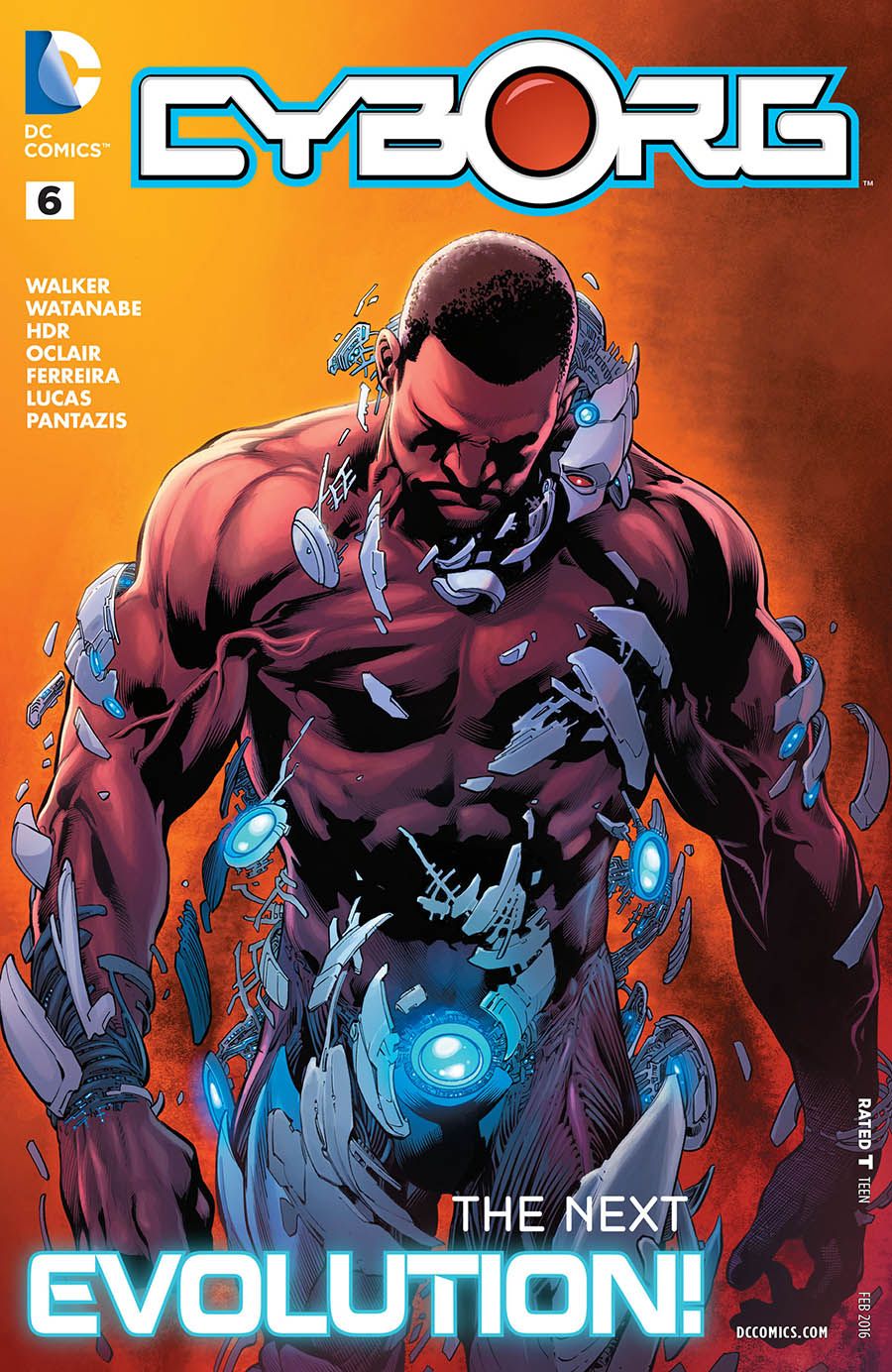"Cyborg" #6 is a comic with good intentions, but an uneven follow-through. David F. Walker, Ivan Reis, Felipe Watanabe, Daniel HDR, Cliff Richards, Albert Oclair and Julio Ferreira work with some reasonable ideas, but there's never something concrete enough for a reader to latch onto and want to see what happens next.
"Cyborg" #6 concludes the battle against the Technosapiens, a villainous race that never quite clicks in terms of a strong motivation or a fear factor. They're almost like cybernetic zombies, but they don't seem as dangerous. It doesn't help that Walker's decision on how Cyborg defeats them involves hacking their operating system, something that is even less exciting than you might picture in your own head.
The purpose of "Cyborg's" first story arc aims to elevate Cyborg into a world-class hero and to change his physical look a bit so that the character has a fully healed body (despite still being a cyborg). In regards to the former, though, we never get a real feel for the entire world having been in danger. Instead, we just get the rest of the Justice League's core members telling him what a great hero he is; it's actually a little off-putting, because it's a textbook example of a story telling rather than showing us something. It never feels like Vic has earned these accolades, because Walker's script never gives us that real global sense of danger. While I appreciate Walker's intentions for the latter, it's hard to feel excited about a six-issue storyline designed to restore Vic's missing body parts; that's just not enough of a hook. When earlier story hooks make abrupt re-appearances (Sebastian and Bobby have been more or less forgotten for months now), it contributes to the slightly jumbled feeling for the comic; there are a lot of good intentions here, but none of the script's elements are coming together.
Reis once more provides layouts, with Watanabe, HDR and Richards adding the pencils over them (with Oclair, Ferreira and Richards inking). Watanabe appears to have been provided the bulk of the pencils, and they're certainly very smooth and keep in step with Reis' art from the first couple of issues. Overall, the look from one penciler to the next isn't bad, but it's also not quite as internally consistent between the three as one might have hoped. The problem is that the art in general doesn't visually jump off the page; the hacking sequence feels very pedestrian, and it seems like there are a ton of panels with one or two characters staring at one another. There's nothing visually making you jump for joy.
"Cyborg" #6 is a little worrying. DC Comics clearly wants the character to do well, between this series, his prominent placement in "Justice League" and even his appearance as a launch expansion character for the "Lego Dimensions" video game. Unfortunately, this book doesn't seem to be the right way to raise Cyborg's profile. The supporting cast still feels one-dimensional and this six-issue storyline felt both padded and unsatisfying at its conclusion. The basic concepts feel sound enough, but the execution just isn't bringing it home.

